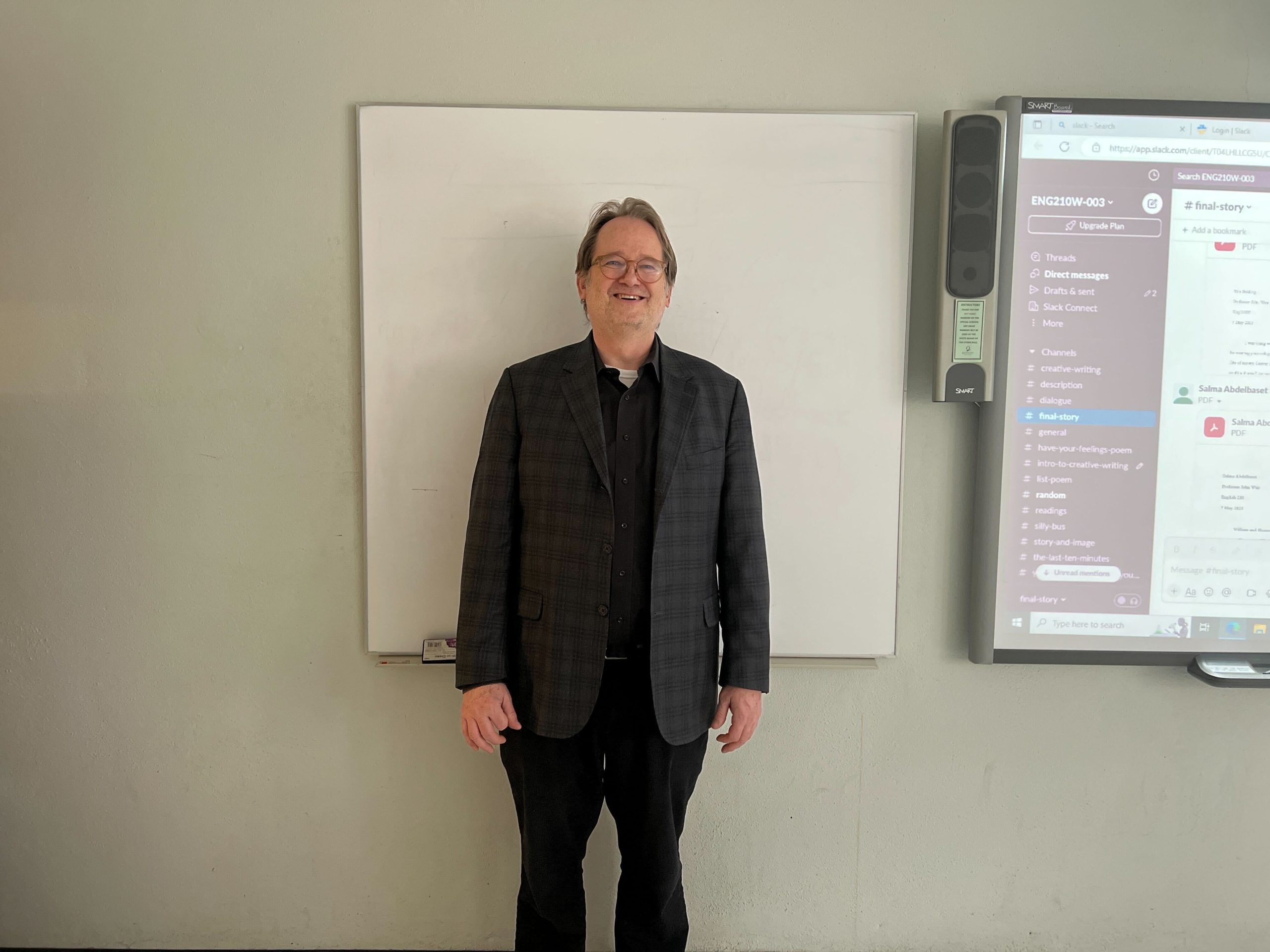‘‘We interrupted the CBS Evening News with Dan Rather; three of us got onto Dan Rather’s set, chanting, ‘AIDS Is News, Fight AIDS, not Arabs,’ we were hauled off the set and arrested.’’
This was just one of the many examples of protest English Professor John Weir participated in the late 1980’s. This was the time when the AIDS epidemic was beginning to reach its peak as the government was turning a blind eye toward those who were infected, the majority of whom were gay men.
Professor Weir spent many years combating the government/medical indifference toward the global AIDS crisis alongside his advocacy on behalf of the LGBTQ+ community more generally. ‘‘I volunteered for a couple of years for Gay Men’s Health Crisis. For a year I ran a writers group for about a dozen guys, all but one of whom died of AIDS over the course of that year; and I wrote a piece about the writers group,’’ Professor Weir said. ‘‘ My professor showed it to the Editor-in-Chief of Harper’s Magazine, and it was published there in 1986. There had been not much writing about AIDS in mainstream publications at that point.’’
Toward the end of the decade, Professor Weir had gotten involved with a group called ACT UP New York. The group’s main objectives were to not only find a cure for AIDS, but to call for action from the government and the medical/pharmaceutical industries. From 1989 to 1991, ACT UP confronted various legislators and pharmaceutical companies about the ongoing AIDS crisis, demanding a response.
One such tactic that Professor Wier took part in with ACT UP was disturbing a legislative session at the state capitol, where the group then proceeded to lie on the floor outside the chamber chanting.
One of Weir’s most notable demonstrations would happen in January of 1991. ACT UP New York had staged a Day of Desperation, where the group had planned to go to Grand Central Station during rush hour to lay across the floor, blocking access to transportation. The night prior, a few ACT UP affinity groups attempted to interrupt television news broadcasts to bring attention to AIDS. Weir’s group, Action Tours, was the only one that managed to get on air. Weir’s face appeared on screen for a few seconds before being dragged away from the set.
Physical displays of protest were not the only form his advocacy took. Weir has also published three books involving the struggle of AIDS and the overall experience of navigating life as a gay man. ‘‘That’s one way activism plays into my writing, because at that point my writing was partly about saying gay people exist, AIDS exists and homophobia exists,’’ Professor Weir said. ‘‘People should be thinking about it.’’
Professor Weir’s debut novel was published in 1989, during a period when the general public began paying closer attention to the illness, along with showing greater interest in the experiences of LGBTQ+ people in the process. As a result of this growing interest in LGBTQ+ issues, his novel was published fairly easily. Professor Weir’s most recent book is titled Your Nostalgia is Killing Me is a collection of short stories regarding the long aftermath of the AIDS Epidemic, death and interpersonal relationships.
However, Weir has noticed dwindling interest in not only the AIDS crisis, but in the LGBTQ+ community more generally as the years have passed. ‘‘At this point people are over it. Like ‘haven’t we had that conversation already? Do we still need to be hearing about dying gay guys? Like who cares,’” Professor Weir said. ‘‘Nobody’s paying any attention!’’
Due to this, Weir has felt that his third book went under the radar. Not even just from straight people but from the gay community as well. He wonders that if gay people aren’t willing to read his work, then who is?
While Weir has definitely noticed substantial change in the recognition and acceptance of LGBTQ+ people for the better in America, Weir still wants to raise awareness about the gay experience, especially for younger generations.
‘‘One thing I have always wanted people to know about is what it’s like to deal with homophobic classmates, teachers, and adults when you’re young. Having to go through ‘bullying’ and the policing of your identity,” Professor Weir said. ‘‘I think that [is an] experience a lot of queer people have, but also anybody who’s an outsider in their community. That was really intense and I wanted people to really think about that.’’











